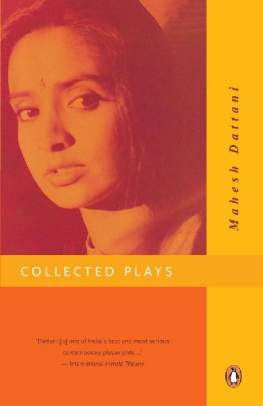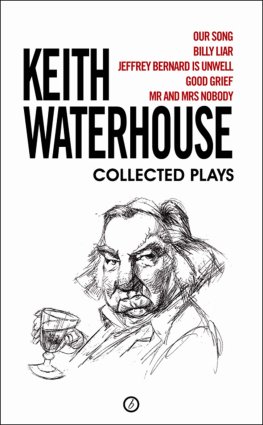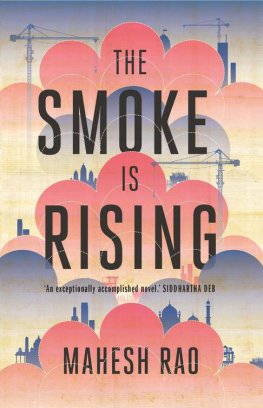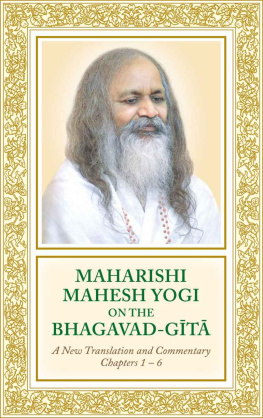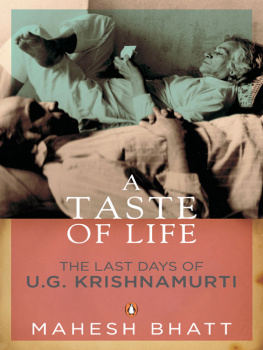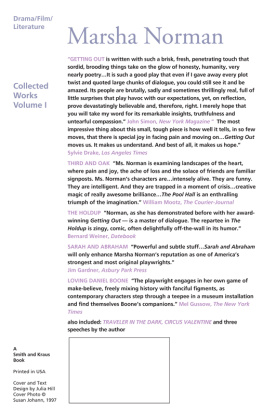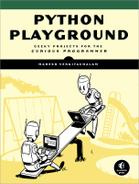Mahesh Dattani
Collected Plays
PENGUIN BOOKS
Contents
PENGUIN BOOKS
COLLECTED PLAYS
Mahesh Dattani, born in Bangalore on 7 August 1958, studied in Baldwins High School and St. Josephs College of Arts and Science, Bangalore.
He has worked as a copywriter in an advertising firm and subsequently with his father in the family business. His theatre group Playpen was formed in 1984, and he has directed several plays for them, ranging from classical Greek to contemporary works. In 1986, he wrote his first full-length play, Where Theres a Will, and from 1995, he has been working full-time in theatre. In 1998, he set up his own theatre studio dedicated to training and showcasing new talents in acting, directing and stage writing, the first in the country to focus on new works specifically.
In 1998, Dattani won the Sahitya Akademi award for his book of plays Final Solutions and Other Plays, published by East-West Books, Chennai, thus becoming the first English language playwright to win the award.
Dattani teaches theatre courses at the summer sessions programme of Portland State University, Oregon, USA, and conducts workshops regularly at his studio and elsewhere. He also writes radio plays for BBC Radio 4.
He lives in Bangalore.
For my parents, Gaju and Wagh.
Look! I am dancing like a man!
Preface
Hopefully my plays make good commercial sense. I know that I am an artist. I dont need to underline it in my works. I write for my plays to be performed and appreciated by as wide a section of the society that my plays speak to and are about. This is perceived by some as selling oneself, or prostituting ones art, or some equally fashionable term for simply wanting to communicate. I also know that I have a lot to say and am probably not saying it well enough. But my characters have a lot to say too, and they seem to be doing rather well at having their say. Every time a critic says something awful about my writing, I realize that they are pointing out something that I have wanted to say and have, as usual, been hopeless and unconvincing. Every time audiences (critics too!) have applauded, laughed, cried or simply offered their silence in response to some moment in the play, I am completely aware that it is my character that has done the work for me. In the best sense of the word, critics hate me. I mean it nicely and without remorse. For if they loved me, I would probably write boring plays full of self-importance that nobody really wants to produce, direct, act in or go to stuffy halls with inadequate facilities to see.
The fact that I want my plays to be performed to large audiences doesnt mean that I want to appease my audiences. I love it when I am confronted with remarks such as Your plays are preaching to the converted. You should do Final Solutions in the villages. Such prejudice! How can anyone be so blind to their own remarks? Assumptions galore that cityfied English-speaking people are all liberal-minded and villagers are communal and bigoted. Worse is when that particular remark is followed by It would make sense in Hindi or Kannada. Meaning, We are not bigots, its those bloody vernacs who need to think about all this. That too in the same breath as professing to be liberal-minded and secular! Another one of my favourites is We are all liberal-minded people, but do we really have to go to the theatre to see gays on stage? I have yet to meet a homosexual who says I have nothing against heterosexuals, but do we have to watch them on stage? Once a lady, who claimed to be a feminist, said that I am a woman-hater because Ratna in Dance Like a Man is responsible for the death of her child. A woman can never be so irresponsible. You should treat your women with more sympathy, she said imperiously. What the f@#* does she think Jairaj should be doing? How come it is only a womans responsibility to play the nurturer? It takes two to breed, remember? How come she never questions Jairajs irresponsibility? I wish I had said something like A true feminist wouldnt make such a remark. I wish, I wish... But as I set off telling you I have a lot of things to say and I am not good at saying them well.
There are two directors who really helped me a great deal in building my self-esteem, as well as assisting me to secure a regular audience for my plays. One grew up hearing of this giant theatre figure called Alyque Padamsee. When I first met him, I was an aspiring actor in my teens and he was touring with his production of something called Tarantula Tanzi. I will never forget dinner with him and his glamorous cast at Princes on Brigade Road. He is truly as tall as the tales around him. A creature with a constant creative temperature of a 105. He could indeed pass off as God with a little backlighting. I had shown him an adaptation of a Gujarati play that I had worked on but he didnt really think much of it. But then he was from Bombay, I thought, and forgot about our meeting.
Almost a decade later, in the late eighties, my productions of Where Theres a Will and Dance Like a Man were received reasonably well by Bangalore audiences and critics. We took Dance Like a Man to Bombay to perform at the Sophia Bhabha Hall. There were probably a hundred people that night in a hall that seats eight hundred. But among them were Mr and Mrs God! After the performance, Alyque knocked on my greenroom door and waited patiently till I changed from my costume. They invited us over to their house for dinner. After much dahling-ing from his charming wife, Sharon, they went on to say how much they loved the play. If I remember Alyque correctly, he mumbled something like At last a playwright with some conviction, or some such thing. I was too overwhelmed by the presence of these stars to remember what I said. He wanted to know what I was working on next. I told him a little bit about an idea for a new play, Twinkle Tara. He loved it. He wanted to know when I could send him a first draft so that he could have a reading. After many phone calls from his secretary, I did complete Twinkle Tara in the record time of four weeks and mailed him the manuscript (those were the days before e-mail). He had his first reading with his cast to which he invited me over to Bombay. His actors loved it. He loved it. He wanted to do a full-scale production of my little play! But I insisted that I direct a production in my home town Bangalore before I gave him the rights. He reluctantly agreed.
The rest is history, or so it seems to me. He gave me top billing, putting my name in bold on all the hoarding and press publicity for the playMahesh Dattanis Tara (which was interesting considering the publicity for his previous production said something like Alyque Padamsees Othello ). The performance had begun even before opening night. The critics loved it and I got a piece of the real action. Alyque believed in my work even before I believed in it myself. He gave me the courage to call myself a professional playwright and director.
Something exquisite breezed in to my office one day. She called herself Lillette Dubey. Apparently Mahesh Elkunchwar, whom I consider the father of modern Indian theatre, had given her my address with a strong recommendation to produce Bravely Fought the Queen. Lillette spent almost an hour talking at me. I was totally taken by this vision of beauty. In spite of all my political correctness, I couldnt help thinking of her charms first before really listening to what she was saying. I think I made the appropriate noises, because the next thing I knew I was at the photocopying centre around the corner making copies of my manuscripts for her. I came down to earth just in time to present her with a bill for the photocopying. Without hesitation she dipped into her bag, retrieved a wad of notes and waved a few hundred rupees at me. It was implicit in her action that I could keep the change. (Later on, I touched her for more money than would fit into her bag!) Unfortunately Lillette never did produce Bravely Fought the Queen. She never told me why. I could simply see her as Dolly, the strong, beautiful and sensitive woman who fights her battles one evening in front of a complete stranger. I was extremely disappointed. I have, however, been compensated for that loss with four very talented actors playing that part in three different productions, each one different from the other, each exceptionally brilliant in their own way.



